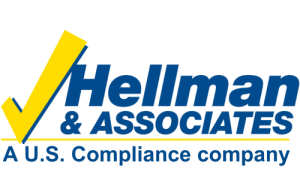OSHA Standard:29 CFR 1910.212 General Requirements for All Machines
When you think of the word pinch, would you automatically think of it as something that could cause a disabling injury to your hands, toes, or body? At work, pinch points are those situations where machines, hand tools, and conditions put our hands, feet, and sometimes our entire body in danger. An injury can come from something as small as a pair of pliers, or as large as an excavator. Most tools have, or can cause pinch points. It might surprise you to know that hand injuries alone account for one third of the millions of disabling on-the-job accidents occurring each year. Most of these hand injuries are caused by pinch points – 80% of them in fact.
So how do we protect ourselves and our fellow workers from pinch points? There are three major things we can do – they are awareness, physical barriers, and personal protective equipment.
Awareness
All around us are things and activities that can cause us to be injured by pinch points (form placement, tool usage, material handling, etc.). Many cannot be avoided, but if you are constantly alert you can protect yourself from injuries. Awareness comes in two forms, a common sense alertness of the right thing to do, and training in the correct way to do things and use equipment.
Physical Barriers
In service areas, physical barriers might be anything from the machine guard on your table saw to barricades or warning devices from a running engine. Physical barriers are there to protect you from injury, not prohibit your activity. Guards are important to protect you from direct contact with moving parts, flying chips, kickbacks, and splashing of metal or harmful liquids. Barricades are placed at construction sites to warn you of dangerous situations.
It takes knowledge and insight to properly prepare equipment for maintenance or storage. Blocks are used to prevent equipment from rolling and heavy parts from falling. Never remove them unless you know why they are there, and the reason for being there is completed. Always check for fellow workers in harm’s way before removing blocks.
Personal Protective Equipment (PPE)
Respecting and using physical barriers and being aware of your surroundings are only half of what you need to do to be safe. Make sure you are always wearing your safety gear and inspect it before each use. Although the last line of defense against a pinch point injury, PPE (proper gloves, footwear) is a necessity to ensure others notice your position and your extremities are protected.
